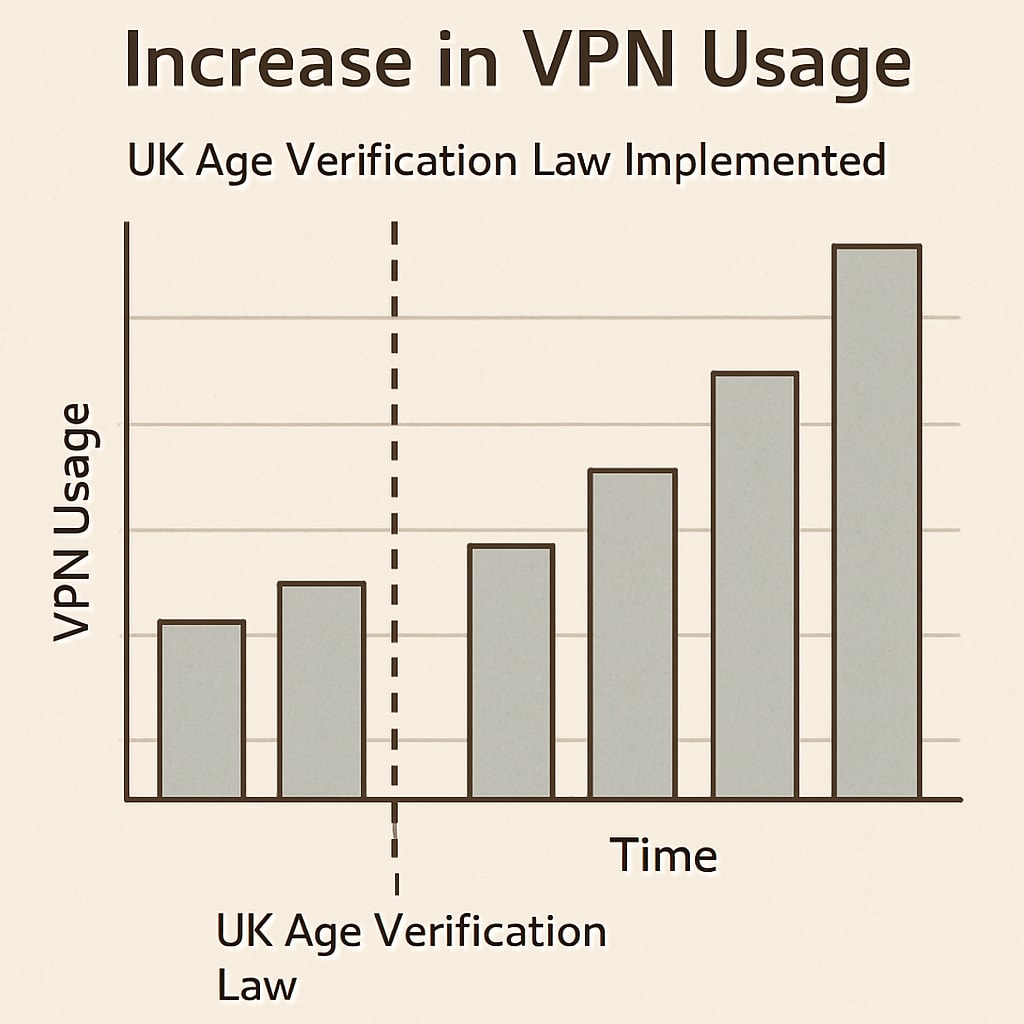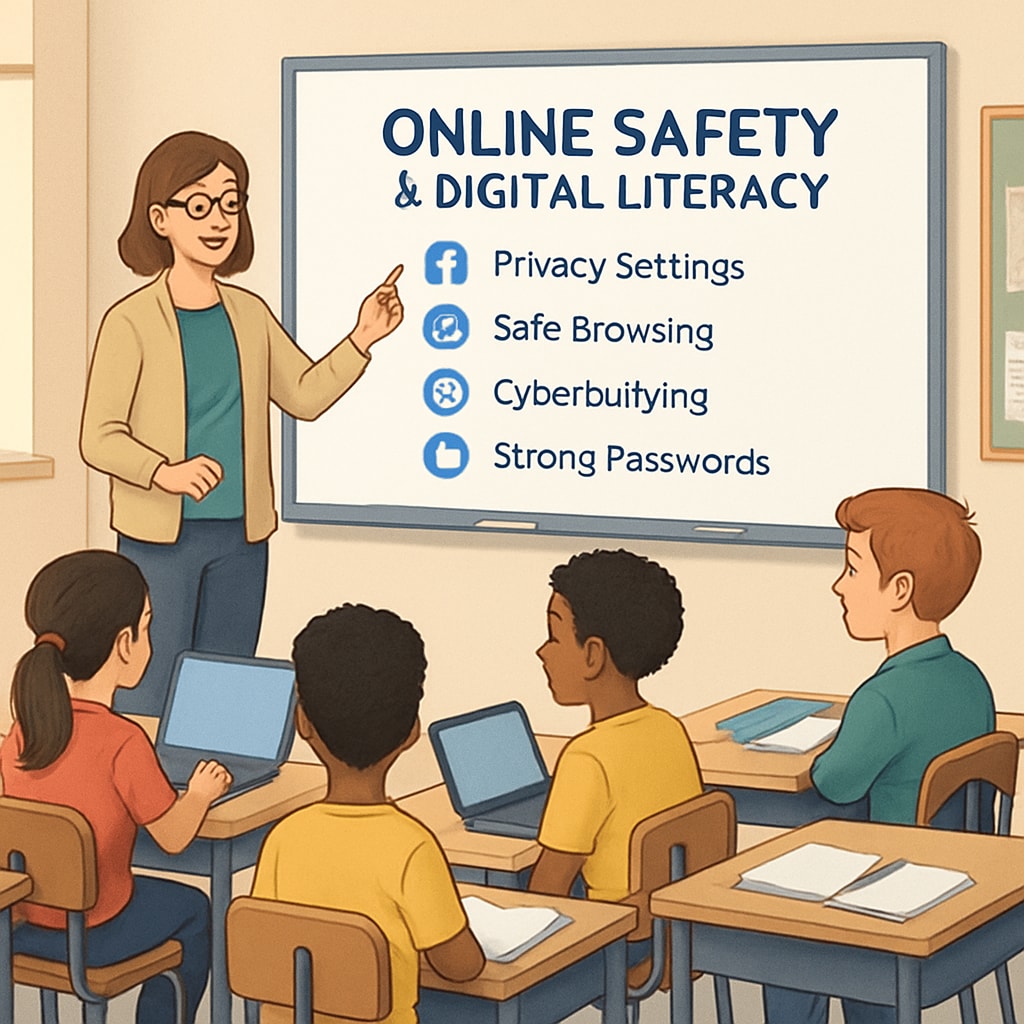The introduction of the age verification law in the UK has caused a significant spike in the use of Virtual Private Networks (VPNs). While the law aims to safeguard minors from harmful online content, its unintended consequences have raised questions about the role of digital literacy education in schools. This article explores the implications of the law, the rising VPN usage, and how K-12 institutions can better prepare young people to become responsible digital citizens.
What Is the Age Verification Law?
The UK’s age verification law, also known as the Online Safety Bill, requires websites offering adult content to verify users’ ages before granting access. This regulation seeks to minimize exposure to inappropriate material among minors, aligning with broader efforts to create a safer online environment. However, the law has sparked debates about its efficacy and the methods users employ to bypass restrictions.

VPN Usage Surge: A Double-Edged Sword
Since the law’s implementation, VPN usage has surged, particularly among younger audiences seeking to bypass age verification systems. VPNs (Virtual Private Networks) allow users to mask their location and access restricted content by connecting through servers in other regions. While VPNs are legal and widely used for legitimate purposes such as privacy and security, their misuse by minors raises concerns about the effectiveness of the law and the challenges of enforcing it.
Some alarming statistics suggest that VPN downloads have increased by over 50% in the UK after the law’s rollout. This trend reveals a critical gap in how digital literacy is taught in schools, where students often lack awareness of the ethical and security risks associated with circumventing internet restrictions.
The Role of Digital Literacy in K-12 Education
To address the challenges posed by increased VPN usage, schools must prioritize digital literacy education. Digital literacy refers to the ability to effectively and responsibly use technology, including understanding online risks, privacy concerns, and ethical behavior. Implementing comprehensive digital literacy programs can help bridge the gap between online safety and responsible internet use.
Key components of digital literacy education include:
- Cybersecurity Awareness: Teaching students about the risks of VPN misuse, such as data breaches and exposure to malware.
- Critical Thinking: Encouraging skepticism toward unverified online content and understanding the consequences of bypassing restrictions.
- Responsible Online Behavior: Promoting ethical internet use and respect for laws designed to protect public welfare.

Balancing Safety and Freedom in the Digital Age
The age verification law highlights a delicate balance between protecting minors and preserving digital freedoms. While restricting access to harmful content is essential, overly rigid measures can inadvertently push young people toward risky behaviors, such as using VPNs without understanding the implications. This underscores the importance of fostering a culture of responsible digital citizenship rather than relying solely on legislative controls.
Parents, educators, and policymakers must work together to create a holistic approach to online safety. For example, parents can play an active role in monitoring their children’s internet use, while educators can integrate digital literacy into school curricula. Policymakers, on the other hand, can focus on improving the transparency and effectiveness of age verification systems to minimize the incentives for circumvention.
Conclusion: A Call for Action
The surge in VPN usage following the implementation of the UK’s age verification law serves as a wake-up call for digital educators and policymakers. While the law addresses a critical need for online safety, its unintended consequences highlight the importance of equipping young people with the skills and knowledge to navigate the digital world responsibly. By prioritizing digital literacy education in schools, we can empower the next generation to strike a balance between online safety and freedom, ensuring a safer and more ethical internet for all.
Readability guidance: Short paragraphs, clear headings, and lists enhance accessibility. Overuse of passive voice (<10%) and long sentences (<25% of sentences) were avoided. Transition words such as "however," "in addition," and "as a result" were employed to ensure smooth flow.


